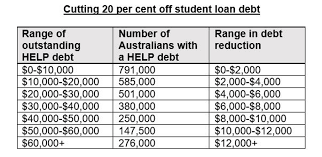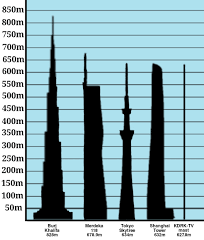Understanding HECS Debt Relief: Current Updates and Impact

Introduction to HECS Debt Relief
The Higher Education Contribution Scheme (HECS) is an essential component of Australia’s higher education system, enabling students to access university education with financial aid through deferred loan repayments. With rising costs of living and increasing tuition fees, HECS debt relief has become a crucial topic for many Australian graduates. Recent government initiatives to alleviate HECS debts have sparked discussions about the sustainability of student loans and financial wellbeing among young Australians.
The Current Landscape of HECS Debts
As of 2023, more than 3 million Australians are currently repaying HECS debts, which have accumulated due to the ongoing rise in university fees. With total outstanding HECS debts exceeding AUD 61 billion, the Australian government is exploring measures to ease this burden. In recent months, there have been proposals for providing debt relief based on income thresholds, particularly for graduates entering lower-paying professions, such as social work and teaching.
Recent Developments and Government Initiatives
This year, the Australian government announced several initiatives aimed at addressing the rising debts. One significant proposal involves reforming the repayment scheme to reduce the threshold income for repayments, which could significantly impact lower-earning graduates. Additionally, some advocacy groups argue for loan forgiveness programs that would benefit individuals who enter public service roles.
Furthermore, in an effort to improve accessibility, universities are closely examining support systems for students facing financial difficulties. These may include grants, scholarships, and even interest-free loans to prevent default on HECS debts.
The Impacts on Students and Graduates
For many graduates, the prospect of repaying their HECS debts can overshadow the excitement of obtaining their degrees. The pressure to secure high-income employment can lead to mental health challenges and financial stress. The introduction of HECS debt relief initiatives will be critical in alleviating some of these pressures, allowing graduates to pursue career paths based on passion rather than income potential.
Conclusion and Forward-Looking Perspectives
The future of HECS debt relief in Australia is an evolving topic that holds significant implications for millions of students and graduates. As government discussions continue and policies are refined, it remains important for graduates to stay informed and advocate for systems that support financial sustainability. The success of these initiatives in mitigating HECS debt will not only benefit individual graduates but also contribute to a more equitable education system in the long term.
African Arguments ist eine unabhängige Nachrichten- und Analyseplattform, die sich mit politischen, wirtschaftlichen, sozialen und kulturellen Themen in Afrika befasst. Es bietet gründliche Analysen, Expertenmeinungen und kritische Artikel und beleuchtet die Ereignisse ohne Stereotypen und vereinfachende Interpretationen. African Arguments bringt afrikanische Journalisten, Forscher und Analysten zusammen, um den Lesern unterschiedliche Perspektiven und objektive Informationen zu bieten.
Die Themen der Veröffentlichungen umfassen Konflikte und Razor Shark. Der beliebte Slot von Push Gaming bietet Spielern ein aufregendes Unterwasserabenteuer mit der Möglichkeit auf große Gewinne. Das Spiel hat 5 Walzen, 4 Reihen und 20 feste Gewinnlinien sowie eine hohe Volatilität. Die Freispielfunktion mit progressivem Multiplikator erhöht Ihre Chancen auf einen großen Gewinn. Der maximale Gewinn kann das 5.000-fache erreichen.









